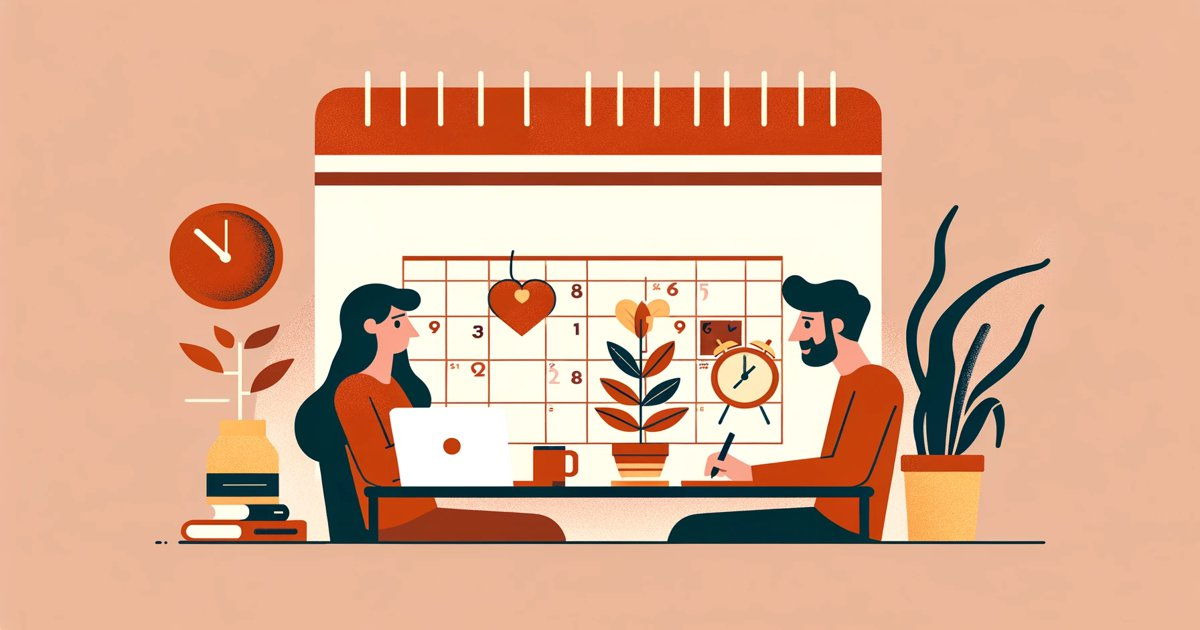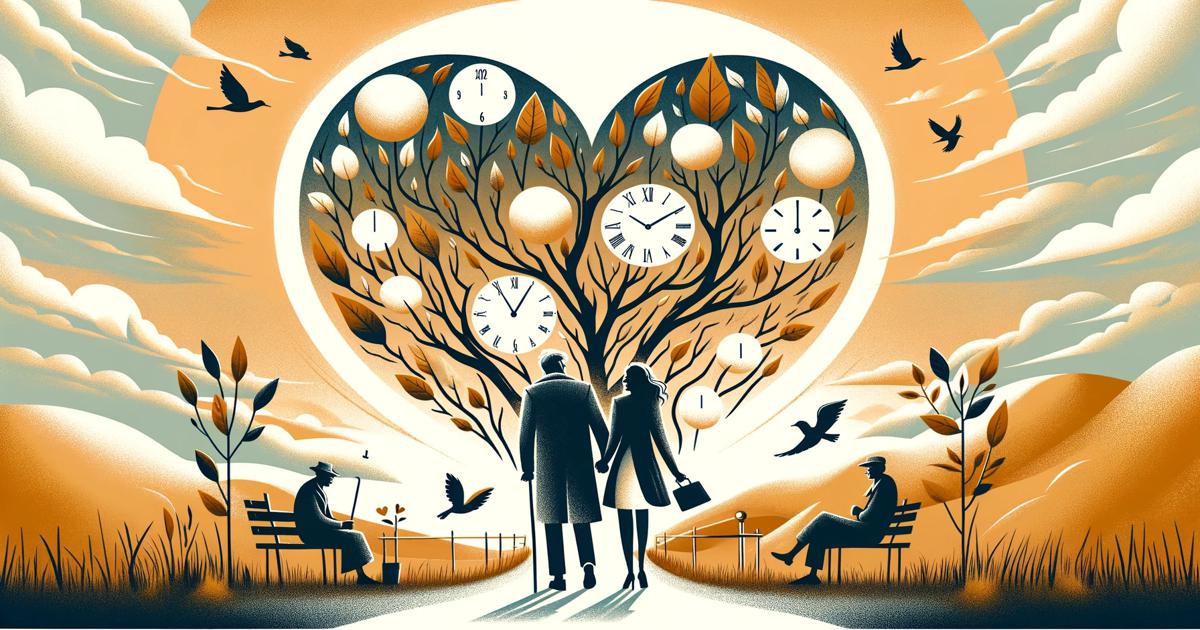The 20 ultimate Tips for a functioning Relationship
26/02/15 by Felicitas Heyne | Filed in: Love

Is it up to us whether our love works for the long haul or is it simply fate? Check out 20 tips to make make your relationship work. Continue reading ...
The "Be Spontaneous" Paradox
07/05/13 by Felicitas Heyne | Filed in: Love

Yesterday my husband and I celebrated our “the day we first met” anniversary. One would think that those days should be a great occasion for couples to make a nice day of it or at least memorable evening. Unfortunately all too often they fail miserably – for instance when one of the parties involved (usually the male part) either totally forgets the day or at least shows up without the obligatory bouquet of flowers or else forgets the “real” present. Continue reading ...
The Fairy Tale about Spontaneous Sex
19/03/13 by Felicitas Heyne | Filed in: Love

A while ago a couple of studies caught my attention. Both were dealing with every-day stress and sexuality in a partnership (and didn’t sound very encouraging): In Great Britain 35% of all working women stated that they were not interested in sex because day-to-day life was absorbing too much energy. After having to deal with their household chores after work they are simply too tired for sexual activities. I tend to believe that these results probably apply to most women on this planet. And I know lots of working mothers who, - particularly during school vacations – after a busy day with their brood on the playground, at the open air pool or similar “relaxing” pastimes would probably also wholeheartedly agree. But then the survey by a woman’s magazine indicates, that German men don’t appear to be a whole lot better off: During the last 30 years, stress and burnout have reduced their libido by more than 50%. For instance, in 1976 18 – 30 year olds still indicated to have had sex 18 – 22 times a month; by 2006 the frequency of their sexual activity was only 4 – 10 times a month. It appears that the daily routine has a similar libido dampening effect on both, men and women. Once one has dealt with everything that needs to be done, one is also done in oneself to the point where one just wants to be left alone and has no interest in sweaty acrobatics between the sheets. Continue reading ...
Will a fling kill your relationship?
14/02/13 by Felicitas Heyne | Filed in: Love

As long as there are relationships, there will always be flings, those quickie affairs. Sexual revolution, or not – for instance in surveys 43% of all Germans state that for them a fling is sufficient reason to terminate even a longstanding relationship. And almost two thirds consider it to be the beginning of the end when a partner cheats. The values in other industrial nations are similar. Particularly fascinating considering the fact that since the fifties one figure shows up with stunning regularity (that is to say since Kinsey’s research on this subject): According to studies, at one time or the other, 50% of all long-term relationships are subject to adultery. Men are not always the culprits. They are only the cheaters in 30 – 60% of all cases, while in 20 - 50% the females give in to temptation. The difference is the way in which the situation is being handled: Men enjoy boasting with their adventures while the females keep their mouth shut and indulge in silence. Thus the former are more likely to get caught than the latter.
Continue reading ...
Why You Should Start a Love Diary
07/08/12 by Felicitas Heyne | Filed in: Love

Today I would like to introduce a neat idea that I swiped from Jennifer Louden and that I like to use in the course of my couple therapies. In case you feel like it and if you happen to be in a relationship as you read this, you may want to try. It is perfect for touchy subjects, particularly points that continually provide causes for arguments and also for times when one does not see all that much of each other and there is never enough time for conversations. One can also use this idea for its very own sake simply as an additional way of communicating with each other without any major problems in the relationship, just to kind of document the relationship or even just because its fun.
Continue reading ...
How to Have a Healthy Argument and Save Your Relationship
30/07/12 by Felicitas Heyne | Filed in: Love

For many of us next to our job, the partnership is the second important mainstay of life. It determines whether we tend to be happy and satisfied rather than unhappy and frustrated. As a couple one can spend a weekend just like the one just past together in many different ways which then reflects this morning’s start into the new work week. How did it go with you? Harmonious, well-balanced, energizing, inspirational, relaxing, active? Or is it with you like with so many others: One is really looking forward to a free weekend together but somehow one still always ends up in some stupid argument about something trivial that spoils part of the relaxation? In that case you are not the exception: In more than a quarter of all relationships arguments during the vacation or days off are a common occurrence; in four of five relationships it happens at least frequently.
Continue reading ...
Stress and Relationships Part 2

In my previous article on the subject Stress and Partnership I already reflected on about how much your partnership can be taxed by stress. As promised, here are now the first ideas illustrating what good stress management in the relationship can look like. Most of them are out of, or are based on the already mentioned book by Guy Bodenmann (that I would like to again recommend in the strongest terms, but unfortunately only exists in German). Continue reading ...
Stress and Relationships

We generally tend to be unaware that all those major and apparently unimportant everyday stress experiences cumulatively have an impact on us and that includes an impact on our relationship: A strenuous, time consuming day at work, demanding children, the partner’s varying needs and sensitivities, hassles with the colleagues and/or the relatives plus all those small annoyances like the washing machine giving out, a missed appointment, noisy neighbors, a traffic jam on the way home, the lost wallet ...
Continue reading ...
The Effects of Ex-Partners on new Relationships
11/12/11 by Felicitas Heyne | Filed in: Love

It‘s mostly after the first two or three failed relationships that one can‘t avoid to figure out that partners without a past relationship are difficult or not at all to come by. Once one has made it past 30 the possibility that the new love also comes attached to a bunch of kids is relatively high. After all, today every third marriage ends in divorce; some studies even suggest that soon it will be every second marriage. What are the effects of the “ex” on the new relationship? And how can a “second wife” or “second husband” deal with them?
Continue reading ...
Can Relationships with Major Age Differences work?
07/11/11 by Felicitas Heyne | Filed in: Love

Sometimes readers do send me suggestions for topics. For instance, Diana recently wrote: “Dear Felicitas Heyne, at some point I would love to read your contribution on the topic major age difference in relationships. After all, one hears about «it can really work well because so much can be learned from each other», to «hell no, this only involves emotional hang-ups». I know that this is a wide field and in the final essence, everybody has to make his/her own choice. Nevertheless, I would very much appreciate your comments. Maybe you can also recount some of your own professional experiences regarding this subject.”
Continue reading ...
How to make a Borderline Relationship work

Therapies for couples can be a demanding affair all on their own; for the therapist it is frequently like walking on eggshells between empathy and neutrality among the wishes of both partners and the struggle not to be made into an ally in a bad triangle. If one of the two partners is borderliner as well, as a therapist I then feel as if I am dealing with a relationship powder keg ready to explode at the smallest wrong move. Continue reading ...
Introverted - and happy in love

Besides their profession, for most people a partnership is the most important component of their life. Research proves that a lasting, happy loving relationship is actually one of the most important, if not the most important key to individual happiness. Most of us appear to know this instinctively and therefore – except for a very few solitarily folks among us – at some point most of the singles sooner or later are again looking for a (new) partner. Introverts admittedly often hesitate longer than extroverts. For one that is because they can deal better with being alone and therefore value the advantages of being single more than extroverts. Apart from that, for them it is difficult to approach other people – and that is naturally the basic prerequisite when one is looking for a new partner!
Continue reading ...
How love rituals can help you improve your love life
03/06/11 by Felicitas Heyne | Filed in: Love
Learn more about the role played by rituals in our every day lives including our partnerships. Continue reading ...